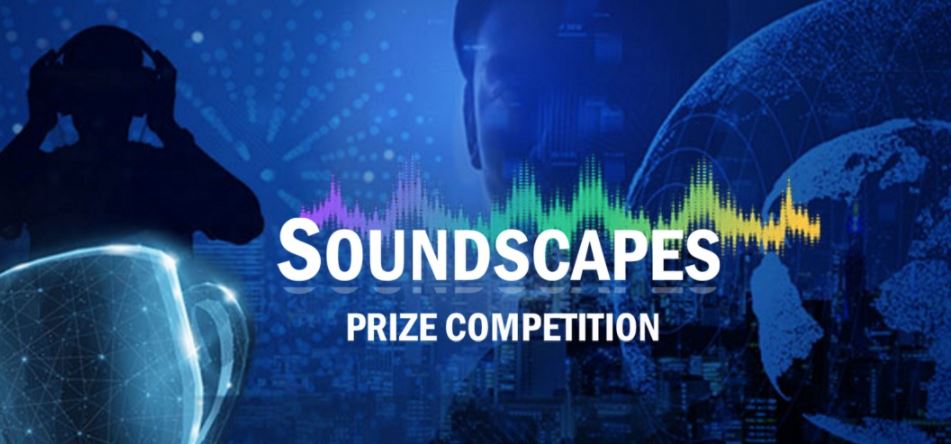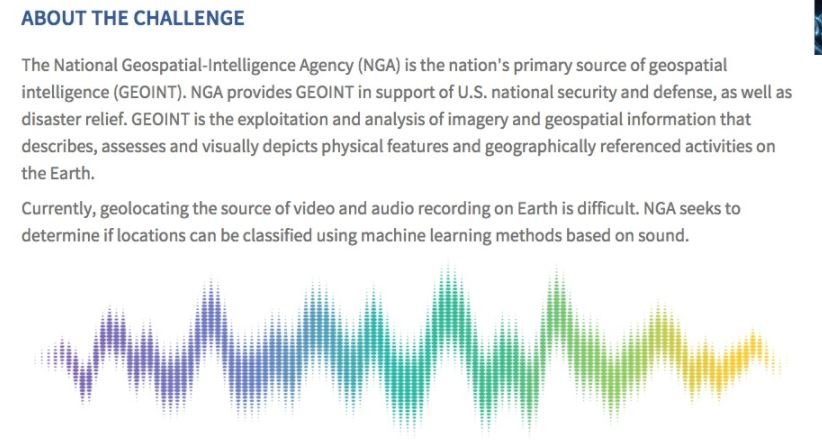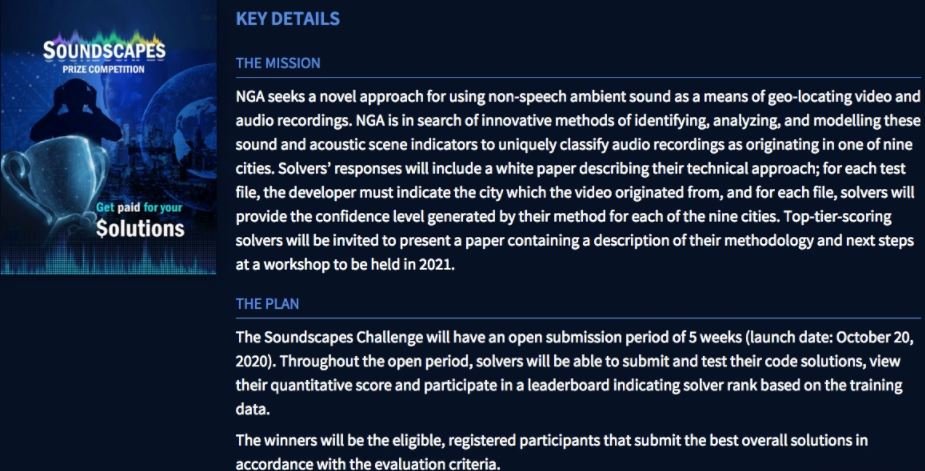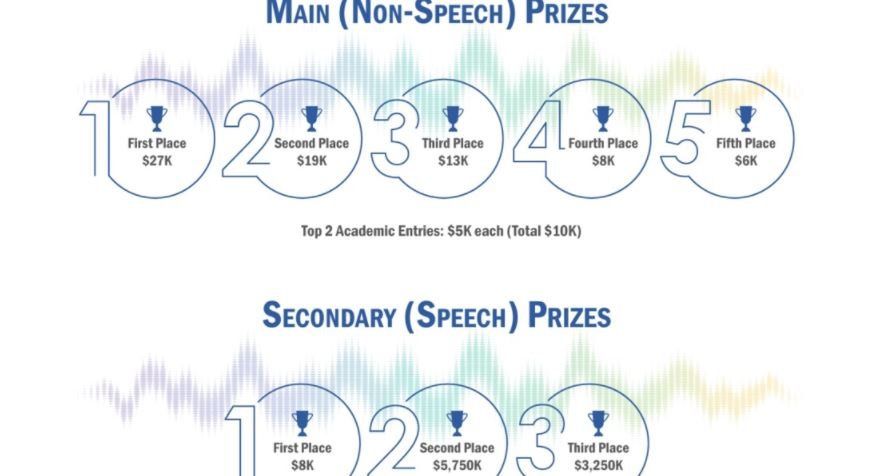An ambitious new technology project could put U.S. agencies at the forefront of the rest of the world. The National Geospatial Intelligence Agency (NGA) has announced the launch of a bounty program that will reward those who manage to develop data extraction solutions from audio and video samples.

Through the Soundscapes Competition project, the agency will offer rewards of up to $27,000 if researchers manage to create “innovative and novel means for the identification, analysis and modeling of acoustic and sound scene indicators”. Michelle Brennan, director of the image and video research module, told Nextgov, “This is the first time NGA has offered rewards to exploit the potential of using data extracted from multimedia material.”


Brennan mentions that the agency’s analysts gain great experiences from leveraging data for geolocation purposes, determining activities, patterns and application characteristics in national security. In other words, NGA seeks to determine geographical locations based on aspects of audiovisual media, including background noise, natural light, among others.
On Brennan’s orders, NGA’s research area implemented extensive research to determine the feasibility of this project: “Academics, research institutes and small businesses have done some interesting research on acoustic characterization, so we decided to launch this project for which we hope to have great collaboration from the specialist community,” Brennan adds.

While determining the geographical provenance of a video from a minimal audio sample would seem like a practical output from science fiction, the NGA maintains high expectations about this project, thinking that the increasing ease of communication allowed by technological developments could facilitate the development of these systems.
For Brennan, machine learning technology has advanced to the point where it can support complex acoustic pattern models, such as the sounds of the city or the singing of a particular species of bird: “Acoustic analysis can be beneficial for the development of this kind of technology,” she adds.
By associating data with specific geographic areas of the Earth, this technology will be able to support U.S. national security in research in areas of soundscape characterization, environmental diversity measurement, bird species identification, and location of some specific sound events. This program will cover an open period of five weeks and is scheduled to end on 27 November. During this time, those involved will produce and test machine learning solutions that can accurately link audio files to the city where they were recorded.

He is a well-known expert in mobile security and malware analysis. He studied Computer Science at NYU and started working as a cyber security analyst in 2003. He is actively working as an anti-malware expert. He also worked for security companies like Kaspersky Lab. His everyday job includes researching about new malware and cyber security incidents. Also he has deep level of knowledge in mobile security and mobile vulnerabilities.











